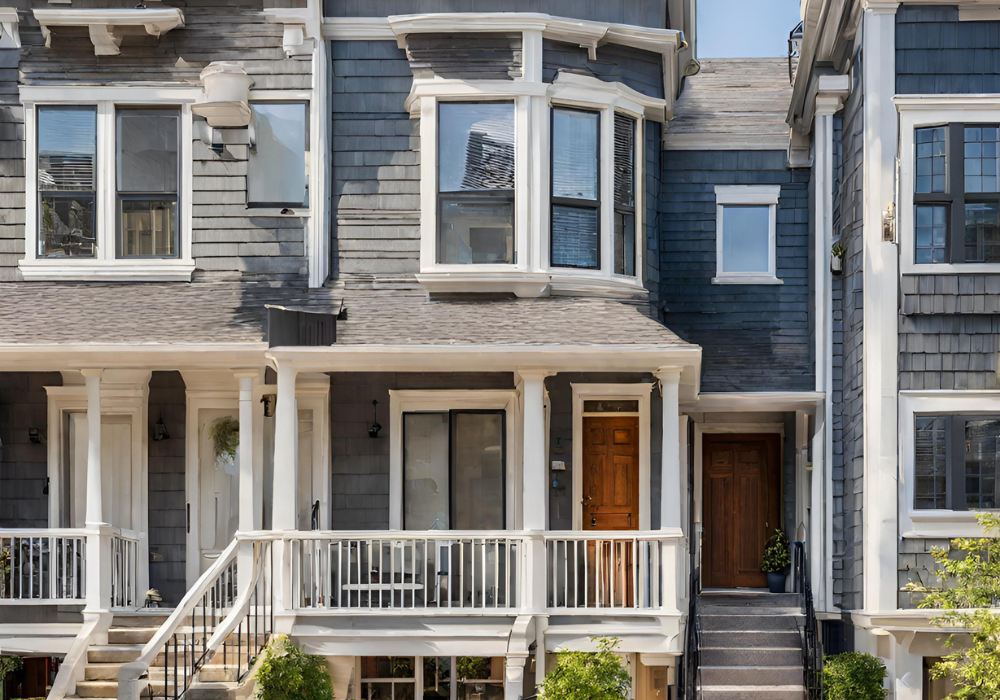
Mortgage Dove
Ultimate Guide on How to Buy a Multifamily Property
Are you looking to generate cash flow and build a robust investment portfolio with a single real estate transaction? Consider investing in multifamily real estate. To get started, determine your budget and explore different types of properties and communities. Next, select a lender and calculate potential profitability. Whether you plan to flip properties for quick profits or rent them out, researching and buying a multifamily home can significantly impact your success and potential earnings. Determine Your Readiness to Buy Investing in multifamily properties has several advantages. For starters, it can offer a more stable income than single-family rentals and a higher cash flow. It is generally easier to manage and less complicated than buying a huge commercial property. However, it's essential to acknowledge that the initial costs can be substantial. Typically, multifamily mortgage loans require a 20% down payment on the property's purchase price. Additionally, there are maintenance and property management expenses to consider. Before purchasing a multifamily property, it's crucial to weigh the advantages and disadvantages of this type of investment. Advantages: Disadvantages: Once you have weighed the advantages and disadvantages of purchasing a multifamily home, the next crucial step is to create a budget before making the purchase. Determine your financial objectives and limit the amount you are willing to invest. Consider various expenses and be ready for any unforeseen costs that may arise. It is essential to be well-prepared. When examining your finances, take into account the following factors: When considering investing in multifamily properties, it is essential to understand that this term encompasses various building types. The three main types are residential multifamily properties, including duplexes, triplexes, fourplexes, apartment complexes, and turnkey properties. It is essential to research each type equally before beginning the investment process to determine which one aligns best with your financial goals. While studying, you may discover that a different kind of property better suits your needs or the rental market. Experienced real estate investors know the factors to consider when buying a multifamily property. One of the most significant factors is the location, which is crucial in determining financial success. Rather than settling for a duplex within your vicinity, conducting thorough research on potential neighborhoods in your area is advisable to identify the most profitable locations. Choosing an excellent place for your investment property is a critical step toward making a wise investment decision. It's essential to have a firm grasp of the rental market in your desired area. Key considerations include: Select your preferred lender and obtain a pre-approval letter. When looking to finance your real estate investment, it can be a time-consuming and effortful process. Securing financing for an investment property often differs from funding a primary residence, with separate requirements, interest rates, and loan types. When purchasing your first rental property, it's important to work with a knowledgeable real estate investing professional who understands the intricacies. Choosing the appropriate loan type for your investment is contingent on the property you intend to buy. Therefore, it's imperative to have a good understanding of the different property types before embarking on your hunt for a new home. For instance, if you plan to reside in a triplex, you can opt for a Federal Housing Administration (FHA) loan which requires a smaller down payment. If you're buying a property that requires renovations, it's worth considering a hard money loan. Unlike traditional banks, many hard money lenders recognize that properties have more significant potential after they've been repaired and will lend based on the after-repair value (ARV). This means you'll be able to borrow more money to purchase and renovate a multifamily property. When looking for a loan for a rental property, finding a lender specializing in investment properties is essential. These loans usually have higher interest rates due to the risk involved for the lender when lending money to a borrower. Investors may avoid multifamily properties due to their high purchase costs. However, when managed correctly, these properties can provide substantial cash flow and returns. There are multiple ways to invest in multifamily properties with no money down, as outlined below: Before visiting potential investment properties, getting pre-approved from a lender for a purchase amount is necessary. This is because multifamily investment can be competitive, and you'll need a pre-approval letter to offer a property. Investing in a multifamily property is an intelligent choice if you want to expand your real estate portfolio and increase your income. Depending on the number of rental units, owning a multifamily property can be a minor or significant undertaking. To begin, seek a trustworthy local real estate agent who can assist you in making informed investment decisions and finding the ideal property to add to your portfolio. Afterward, you must research and compare interest rates and mortgage options from various multifamily real estate mortgage lenders to determine the best fit.Steps on How to Buy a Multifamily Property
Establish Your Budget
Learn the Different Types of Multifamily Property
Study Potential Neighborhoods & Pick a Location
Select your preferred lender and obtain a pre-approval letter
Ways to Buy Without Making a Down Payment
Bottom Line
"Mortgage Dove makes home financing convenient for every American. You can count on us to provide a home buying experience tailored to your personal needs and financial situation. We strive to give you the peace of mind that your home financing goals can be achieved.”

Mortgage®
www.mortgagedove.com



-and-how-does-it-work.png)